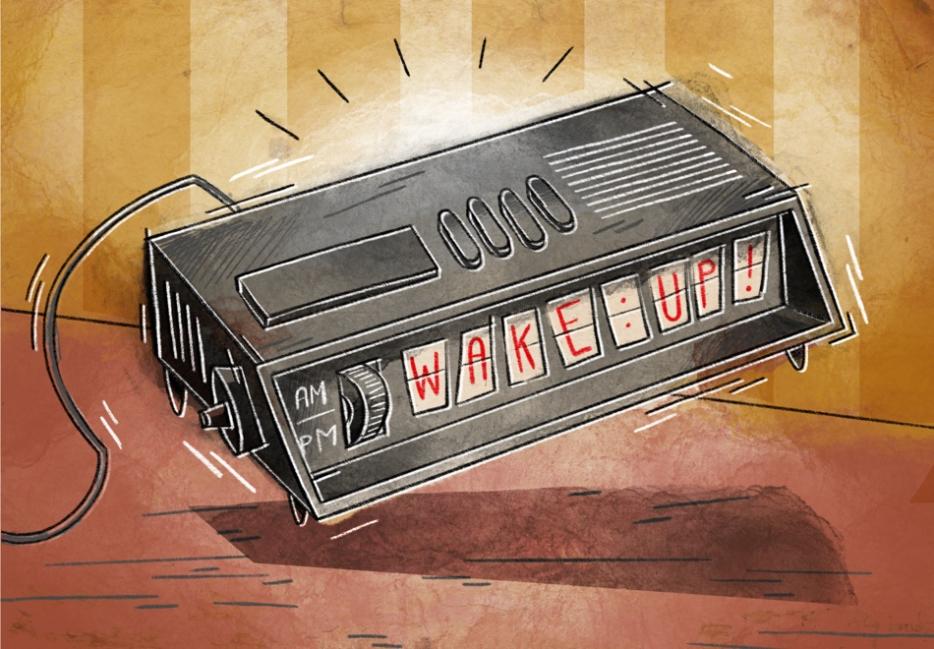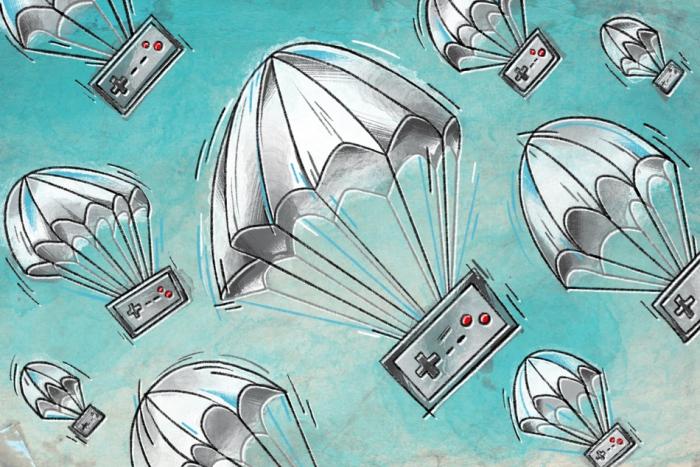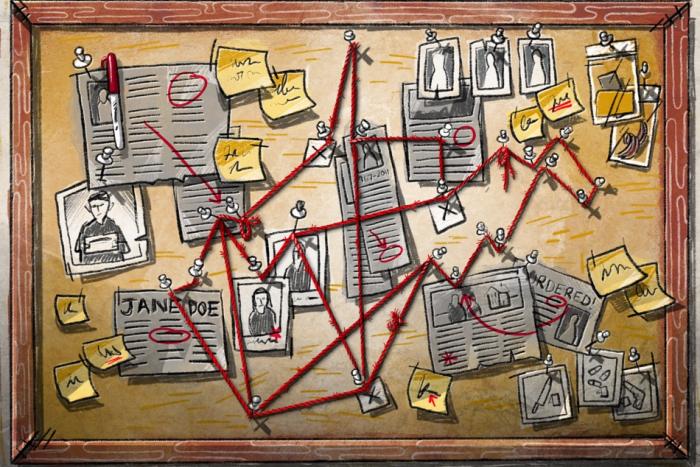What were we obsessed with, invested in and plagued by in 2019? Hazlitt’s writers reflect on the issues, big and small.
I’ll only be alive a short time, feels like I ought to hit it hard. That being said, this year I took a lot of naps.
My day job was at a petrochemical plant, welding, heavy rigging, and repairing machinery. I got up before dawn, drove in, labored away in work boots, hardhat, and coveralls.
On my lunch break, I ate quickly, and then spent the rest of the time writing stories on my cellphone. Each night, I sat down, like this, and wrote some more.
I like working with my hands. But the labor is hard on my body. I’m always climbing up and down ladders and stairs, hundreds of feet in the air, or crawling through the oil and filth. When I’d get back to my apartment in the city at four thirty, I was always too tired to concentrate on sentences and squiggly marks and make believe right away, so I went to the couch and laid down for a while, took one of my famous catnaps.
It was loud outside. The school crossing guard was always outside my window, blowing her whistle. There were police sirens, stereos, screams of all varieties. I’d leave my deaf ear up, place my good ear on the pillow.
And while I slept the world ended. The rivers dried up, the bullets rang out and ricocheted, the bombs went off and triggered other bombs all down the line, churches burned to ash and that was that, the Black Rhinoceros disappeared forever.
Whenever I opened my eyes I was always surprised to part the venetian blinds and find John F. Kennedy Boulevard and Jersey City still there, same as I’d left them, but now in darkness. I’d move to my bamboo desk, refreshed, work on my writing until Rae came home.
This year, my coworker Pat had a routine like mine. After eight years of gathering the parts, he was ready to rebuild a hot rod in his garage. 1928 Ford Model A. At night he’d read his daughter a bedtime story, close his eyes next to her, sleep. Two hours later, he’d get up, go out in his detached garage, get to work. Sparks flew, arc light flashed, smoke rolled. His neighbors might not like him. But I do.
Why not build a hot rod in your garage? Why not write a novel? You’re a lot of things. You’re not your day job. The stars rise and fall, the constellations shift, week by week, season by season. We do what we can, while we still can.
The moon fell. The sun began to rise. I dragged myself out of bed, kissed Rae goodbye, walked out the door.
Over the barbed wire gates of the refinery, I saw for the first time that it would be a beautiful day. No rain clouds in sight. I punched in, smiling. Dawn was nice and ripe.
“I’m tired as shit, man,” Pat said as we walked to the machine shop. “Up late.”
“Same here. How’s the car coming along?”
He pulled out his phone, showed me a picture. There were wheels on the Model A now.
“That looks so good, man.”
We opened the door. It was 6:58 a.m. In two minutes a hundred of us would salute the flag, recite the pledge of allegiance. In three minutes, the safety guy would lead us in our morning stretches: bend over touch your toes, arm circles forward, neck rolls all around.
I took out my own phone and called Rae: “Time to get up and go to work.” She sounded groggy, could barely talk. She yawned, stretched. Her day began.
On her way home from work, she’d call me and wake me up on our couch while she treaded to the train. I would sound groggy. I would barely be able to talk. I would stretch, yawn, my night would begin.
This year, like last year, and the year before, and the year before that, I had two lives. I worked construction, and I made up stories. I stole whatever minutes I could from lunch breaks and made art one day at a time. I stole minutes from the evenings too, but first, like I said, I took another nap. Another nap. Another nap. Another nap.
I’m always paranoid that I’m running out of time. It feels like time speeds up when you get older. When you’re twenty-five a year is reduced to only ten months. When you turn forty, that year is only nine months. By the time you retire, if you do, a year is only three months or so. The day before you die, a year happens every fifteen minutes. I checked the calendar and January was already over, the buzzer went off and it was time to go downstairs and get the laundry, and do the dishes, and get a haircut and get my suit cleaned so I could go to someone’s funeral.
*
The alarm clock went off. I looked out the window. A foot of snow had dumped down on the cars on my block. I dressed for the weather and went out searching and couldn’t remember where I’d parked. Which block. The cars all looked the same. White. Buried. With my hand, I cleared snow off a hood, saw red paint. I was looking for black. I tried another. And another. I was an hour late for work by the time I got there. But a lot of the other guys hadn’t made it in, so they canceled the job for the day. I just had to sit there till 9 a.m., but then I was free, without pay, but free.
I could’ve kicked and screamed and thrashed around and made a million snow angels. There is nothing I like more than unexpected time to write. Nothing is more glorious.
Mid-afternoon, home, and warm, and just as I was getting somewhere in the book, my boss called. I was being sent to night shift, for twelve weeks. I lived on the first floor of my apartment building, I might have jumped out the window if I were any higher.
The third week in February the general foreman had to take off, so my foreman moved up, became the general. I put my welding hood away, stuck my gloves in my pocket, picked up a clipboard and became the foreman, temporarily, of a five-person crew of welders, high up, repairing ductwork and tubes inside a massive furnace. I didn’t want to be the boss. But I had to be. I got the permit, filled out the paperwork, did my best to sound convincing.
Second night of that detail, the drug dogs were out at the gates, so half the crew turned their pickup trucks around and went home, rather than risk getting searched. You never can tell when one of those pooches might freak out because you spilled beer on your pants at the bar the night before, or whatever your problem was.
My problem was, halfway through the shift, I did a head count and found one of the workers missing.
I checked the paperwork. At the start of each shift we had to fill out a JSA, a job safety analysis sheet, which broke down the job step-by-step, identifying a hazard for each step, and then offering a way to mitigate the hazard.
| Task | Hazard | Mitigation |
| Weld | Fire, Explosion | Firehose |
| Grind | Sparks | Containment |
| Climb Ladders | Slips, Falls | Safety Harness |
| Write Novel | Ennui | See Friends |
| Edit Novel | Existential Crisis | Get Laid |
I checked the list of signatures at the bottom of the worksheet. Seven signatures, six guys working. One missing, for sure. I panicked. It was the middle of the night and the guy could’ve fallen down to the ground far below.
My fear wasn’t uncalled for. As job site legend goes, years before, a guy on night shift had fallen to his death from a nearby tower. When day shift came in they found him broken on the ground. He hadn’t died on impact. He’d crawled out to the road, left a trail of blood. The tower had scratch marks where his nails had dug in as he tried to stop his fall.
(Another job site legend I hear every year, and heard again just the other day, was the paper mill incident. In the ’90s before the mill closed, there was a small crew that maintained it. One of the guys was going through a nasty divorce. His coworkers saw him living in his car in the lot. One of them suggested a fully furnished trailer park, cheap, ten minutes down the road. It was believed that the divorced man had moved there. He was no longer found sleeping in the lot. On Thanksgiving, the boss of the paper mill received a phone call from security. There’d been a fatality. A body had been spotted on camera, up on the roof of the mill. The boss pushed the turkey and potatoes to the side and rushed to the mill, went to the roof with the guard and they saw what they thought was a corpse, flat on its back. It was hot up there, and loud. The whole structure shook violently. You had to wear earmuffs. They walked to the corpse and it was the divorced man. But he wasn’t dead, either. He was dead drunk, unconscious. Newspapers, cans of soup, a sleeping bag, bottles of booze all around him. He’d been camping up there. They shook him awake. They screamed, and he screamed. It was Thanksgiving. Most everybody was thankful.)
I went welder to welder, had them point to their names on the JSA. A lot of them were travelers from other parts of the country. The missing man was from Arkansas or Alabama. Nobody quite remembered. Even his name on the list was odd, he went by a nickname. A lot of them do. I’ve worked with countless Cowboys, and Spikes, and Rambos, or whatever. Nobody with the name John was ever called John on the job site.
I hustled down the stairs, searched the base of the structure with a flashlight. He wasn’t down there and I breathed relief. I went inside the furnace and checked all the scaffolding but didn’t find him.
I found him on a higher catwalk, tucked under a section of ductwork we weren’t repairing. I saw his boots sticking out like the Wicked Witch of the East. I knelt down and saw he was breathing. Sleeping. Rip Van Winkle. I called his name and he sat up quick and hit his head, and then, rubbing his head, he realized he was in New Jersey, and he begged me not to fire him and I laughed and I said it was fine and I laughed again and then he laughed, and who the fuck was I to fire anybody? It was just so nice he was alive. And I felt so nice that I was alive.
If he hadn’t been alive, I would’ve had to deal with the paramedics, the plant manager, but worse than all that, I would’ve had to talk to the man’s wife, girlfriend, significant other, kids, or his mother, maybe I’d have had to explain it to his dog, “Your master is never coming home. Throw your own stick. Fetch your own stick, too.” Instead, he got to his feet, walked down the stairs, went back to work.
Someone did get injured on that night shift. Towards the end, we were sending the crane hook down between the high steel and the signal man with the radio was talking to the crane operator and I said, “Oh my god look at that beautiful moon.” It was at its apex, fat and strawberry in the dark sky. The signal man looked up at the moon, and somehow threw his back out, fell to his knees in pain. I took the radio and finished the crane pick. Men driven to their knees by the full moon, this is one of the things I know most about.
*
Sometime in March, I opened my eyes on the couch and I didn’t know what day it was. My living room was dark. I thought I was late for work. I jumped up, grabbed my keys, put my shoes on, rushed to my car, found it, started it up. Saw it was six o’clock. I’d be late to day shift, I thought. But then I realized it was 6 p.m. and I’d already worked my shift. I shut the car off, walked down Duncan Avenue into my apartment building. Showered. Got dressed. Sat at my bamboo desk, wrote a story, best I could, until Rae came home. We made tacos.
I like to write because when I’m doing it, it’s just me, out there alone. I don’t have a boss when I’m writing. And I don’t have to worry about being anybody’s boss. I can handle being responsible for fictional characters. I can handle being responsible for this essay. Not much else. I don’t want to bring flowers to yet another funeral. I don’t want to Google Map Antarctica and find it gone. I don’t like reality as much as dream, as much as hallucination. In April, I got high as a kite and everything looked like a cartoon for five hours, I wasn’t even responsible for my own body. When the sun came up, I closed my eyes and fell into a sleep, deep and free. And my bank account sank to the center of the earth and burnt up in the lava for eight glorious hours. Maybe I like writing so much because it’s the worst way to go into business for myself. The most worthless. The most fun.
Speaking of bosses, when I was eighteen, and all the cherry blossoms were fat and happy, I had a job with a shovel. I dug ditches, holes in the ground for minimum wage. Moved block. Planted trees. Got a suntan, got clean in the rain. I’ve always worked outside. When I die I don’t even want a grave. Just leave me on the grass. I’m a claustrophobic man, on paper. I don’t want an office job, or a coffin. No cubicle. No pine box.
My shovel boss then was a bearded, potbellied man, always exhausted and worried. Probably some cocaine problem. He couldn’t keep up with the bookkeeping, and estimates, plus he tried to work with us, too. Our paychecks were often days late, sometimes a week. I didn’t like that guy. Neither did my shovel-wielding coworker.
But once, I took the work truck to get me and my coworker donuts and coffee and I found the boss at some random convenience store nearby, passed out, head on the steering wheel. I stood outside the truck and looked in at the boss. First, I thought I would pound on the window and scare the shit out of him. But the more I looked at him, the more he just looked so pathetic. Strung out, but childlike, too. I couldn’t help but feel bad for him. I went inside the store and got the donuts and the coffee and left him alone, went back to the job. Let him sleep.
A few days later, lunchtime at some rich person’s house, the boss put his shovel down and lay in the shade. Me and my coworker ate our lunch, watched him sleep. When our lunch was up, instead of going back to work, we shrugged and picked our own spots of shade, laid down too, bored as shit, pretended to sleep for hours. The minutes slipped off. I stared up at the blue sky. There were no clouds. But then I saw some drift in as if I’d willed them. I liked that feeling. Soon I heard the boss snoring. There’s nothing funnier than hearing your boss snore. At 2 p.m., he cursed me and my coworker. We sat up, rubbed our eyes. “Oh no! We all dozed off.”
When I lost that job, I found another. It’ll always be that way. This year, beginning of summer, I lost my construction job. It happens. I’m gonna lose a lot of jobs.
So I was home, with more time to write. I liked it. I had this yellow rolling cart that I would drag over to the couch, and I would work on my story for the morning, and at 9 a.m. I would pretend I still had a job, and I would take a coffee break like I was still on a construction site, and then I would write until noon, when I’d take lunch. It was nice. I liked not having a job. Out of habit, in the late afternoon, I would try to take a nap on the couch but it hardly ever worked, because I was so rested. Some people say writing is exhausting. Maybe. But writing alone never drove me to an afternoon nap, I’ll say that. And sometimes in the evening I found I had so much energy I couldn’t sleep. I bought a portable book light and clipped it to Mrs. Dalloway, and then Madame Bovary, and then Giovanni’s Room. Sometime after midnight, even Rae would begin to snore.
Pat sent me a new picture of his hot rod. He’d rebuilt the chassis, set the ride height. It looked good. He was just about to drop the motor back in, the transmission after that. I asked him what he was gonna do with the car when it was done. He said, “Drive to work on a nice day.”
What am I going do with my novel when it’s done? Nothing. Drive it nowhere. Let a friend read it on a nice day.
In July I put up a post on Twitter saying I had a lot of free time if anybody wanted me to edit some of their stories. I got a few hits, but I also got an email from a producer putting together a podcast about sleep. They’d read some of my writing about working night shift at the plant. I was invited to write a small script about my experiences. When I sent it to the producer, it was rejected because I had told that gruesome story about the guy falling and the scratch marks on the tower. The podcast wanted less gore, less blood, less guts. They didn’t want to hear about sleepy men falling to their deaths, fireball explosions lighting up the night, I made my edits, resubmitted. But I did get to tell the story about when I was driving home from my night shift and I was stuck in traffic and fell asleep on the George Washington Bridge, and was woken up by a cop at my window, who pulled me out of the car and made me take a sobriety test just as the sun was beginning to come up over the New York City skyline.
The first week of August, the producer had me travel to a studio in the city where I heard him in my headphones and I talked into the mic about nighttime in industrial hellholes, the need for sleep masks, and earplugs to combat city sirens, and firetrucks, and the light streaming into the window, and the crossing guard and her whistle. I even mentioned the man driven to his knees by the moon, but I don’t know if it made it in the podcast. I can’t listen to myself talk.
At the end of August, my friend Joey began updating his Twitter feed, upon waking, “8/23/19: woke up, not dead.”
“8/24/19: woke up, not dead.”
“8/25/19: woke up, not dead.”
“8/26/19: woke up, not dead.”
And so on.
In October, I got my job back. I punched in for work and learned that someone we had worked with for five years had died in bed of a heart attack. At coffee break we all sat together in our trailer and discussed. Someone said the man had said his chest hurt on Friday, his arm was numb. They told the man with the pain to go to the hospital, leave work now, but the man shook his head and lit a Marlboro instead.
We wanted to know if he had woken up, or if he really did die in his sleep. If it was even possible to actually die in your sleep, painlessly. Or if there was pain, it was just pain felt in a dream, and you don’t even know it’s happening, or believe it. That’s what we all want: our pain just to be in a dream. It didn’t seem possible. Had his wife been beside him in the bed, had she slept through it too, had she rolled over and found him in the morning, cold and lifeless?
Heart attack. Keyword: attack. Thrash around, gasp, fight. No one could sleep through an attack. If so, maybe get a better word for what it really was.
“10/22/19: woke up, not dead.”
“10/23/19: woke up, not dead.”
“10/24/19: woke up, not dead.”
And so on.
One morning, people stood out at the gate with buckets, and a photo of the man who’d died in bed was taped on the buckets. We slipped green bills inside the buckets.
I opened my eyes on the couch, and we’d come to the end of the year. I looked out the window and I saw 2020 get off the bus, begin to walk slowly down the sidewalk. I closed the blinds. I sat down at my typewriter. The intercom buzzed. 2020 was outside the building, wanted in. I shut off all the lights. I could hear 2020 outside calling my name. Screaming my name. I attached the portable book light to this sheet of paper, typed faster. The days go so fast, you have to steal the nights, and when all the nights slip away, that’s it. I’m not ready.
All year, time was running out, and I didn’t have much of it. I closed my eyes and slept a catnap, and when I woke up, I did the best I could towards midnight.
When the blue sky had not a cloud, I imagined them. They came drifting in, shaped as what I wanted.
Maybe nothing much mattered to me when I was 19, 20, 21, 22, 23, 24, 25, 26, 27, 28, 29, 30, 31, 32, 33, 34, 35, 36, 37, 38, well we’ll see about next year, but I think I already know.






